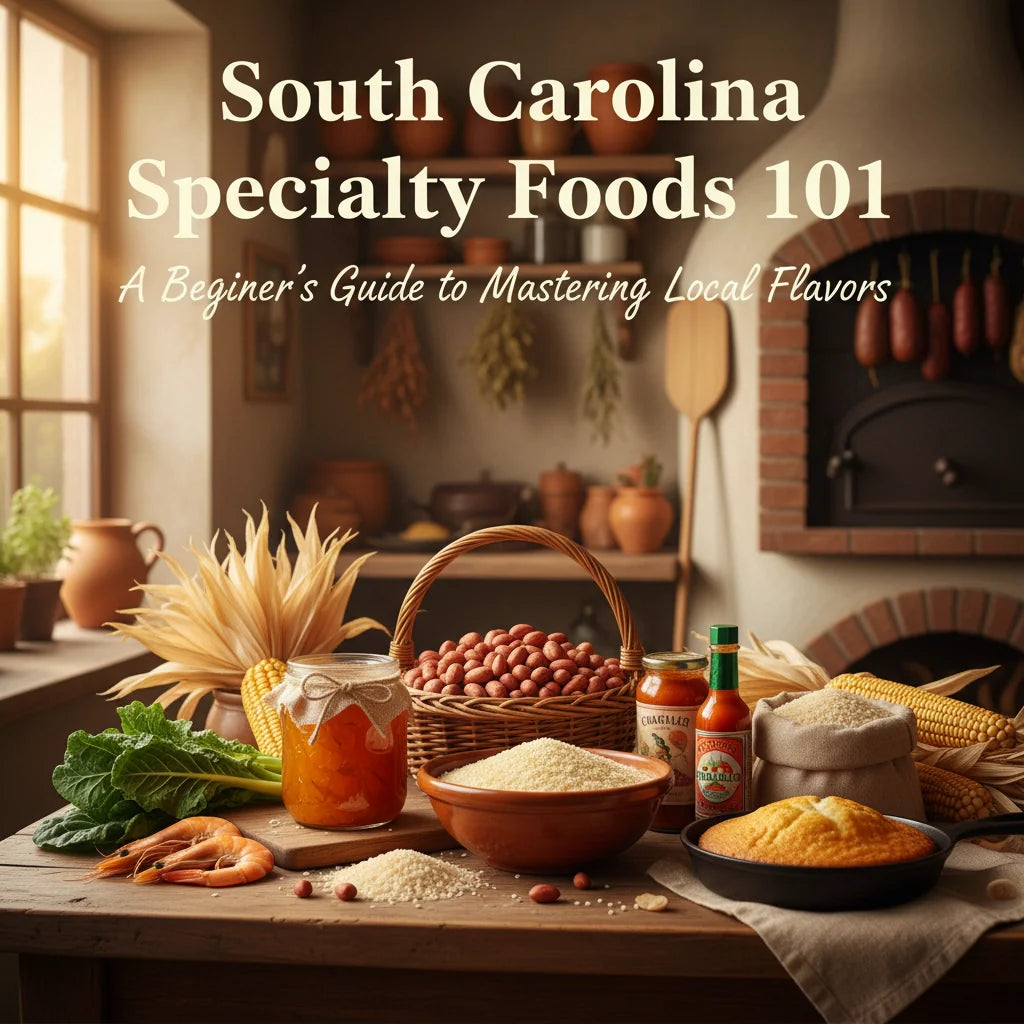
South Carolina Specialty Foods 101: A Beginner's Guide to Mastering Local Flavors
Share
South Carolina's culinary landscape tells the story of resilience, tradition, and second chances: much like the journey that birthed Apastioli in a Charleston kitchen. When you dive into the Palmetto State's specialty foods, you're not just tasting flavors; you're experiencing generations of cultural fusion, from West African influences to European heritage, all simmering together in the humid, fertile lowlands where dreams take root and redemption finds its way into every jar.
This isn't your typical food guide. This is about understanding how local flavors become legacy, how small-batch dedication honors both heritage and hope, and how every South Carolina specialty food carries the DNA of survival, creativity, and community. Whether you're a newcomer to the region or a lifelong resident looking to deepen your connection to local flavors, this guide will walk you through the soul of Carolina cuisine: and show you how modern artisans like Apastioli are carrying these traditions forward with faith, grit, and an uncompromising commitment to craft.
The Foundation: Understanding Carolina's Culinary DNA
South Carolina specialty foods didn't emerge in a vacuum. They're the product of necessity meeting opportunity, of diverse cultures blending their techniques and ingredients into something entirely new. The Lowcountry cuisine that defines much of the state incorporates fresh seafood, Carolina Gold rice, and complex spice profiles that reflect centuries of cultural exchange between West African, Spanish, French, and German traditions.
What makes these foods "specialty" isn't just their regional uniqueness: it's the deliberate, hands-on approach that refuses shortcuts. Take Carolina Gold rice, the foundation of countless local dishes. This long-grain variety, with its distinctive golden color and nutty flavor, requires patience and respect for process. You can't rush authenticity, and you can't mass-produce soul.
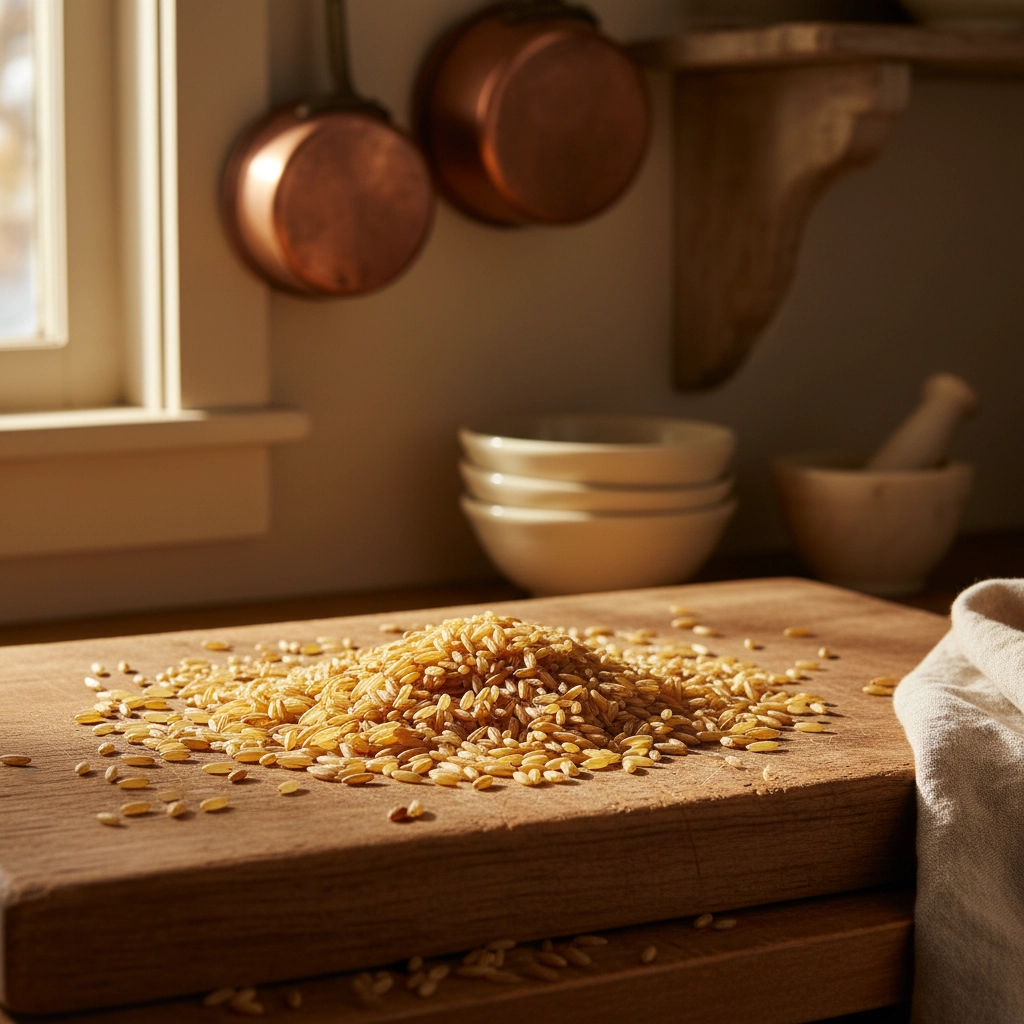
This principle of patient craftsmanship runs through every authentic South Carolina specialty, from the slow-smoked barbecue that takes all night to the carefully tended She-Crab soup that demands fresh, local blue crab. It's this dedication to process over profit that connects traditional Carolina foods to modern artisans who understand that true quality comes from refusing to compromise.
From Italian Roots to Carolina Soul: The Apastioli Approach
In a converted kitchen space in Charleston, something magical happens most nights around 9 PM. Frank Sinatra's "Fly Me to the Moon" fills the air, followed by Post Malone's "Circles," as small-batch magic unfolds jar by jar. This is where Apastioli's Classic Italian Red Sauce comes to life: not in some sterile factory, but in a space where music, mission, and marinara merge into something transcendent.
The process starts with browning fresh garlic in olive oil, a technique that dates back to Chef Giuseppe's Italian heritage but has found its home in South Carolina's artisanal food movement. Each batch simmers for six hours: no shortcuts, no powders, no preservatives. Just tomatoes, herbs, time, and the kind of attention that only comes when you're building something bigger than a business.
Billy, nicknamed "Aquaman" for reasons known only to those late-night sauce sessions, helps with the bottling and labeling. There's a ritual to it: every time a jar cap pops and seals properly, someone yells "Money!": not because it's about profit, but because it represents another small victory, another jar carrying the story of redemption from bars to jars.
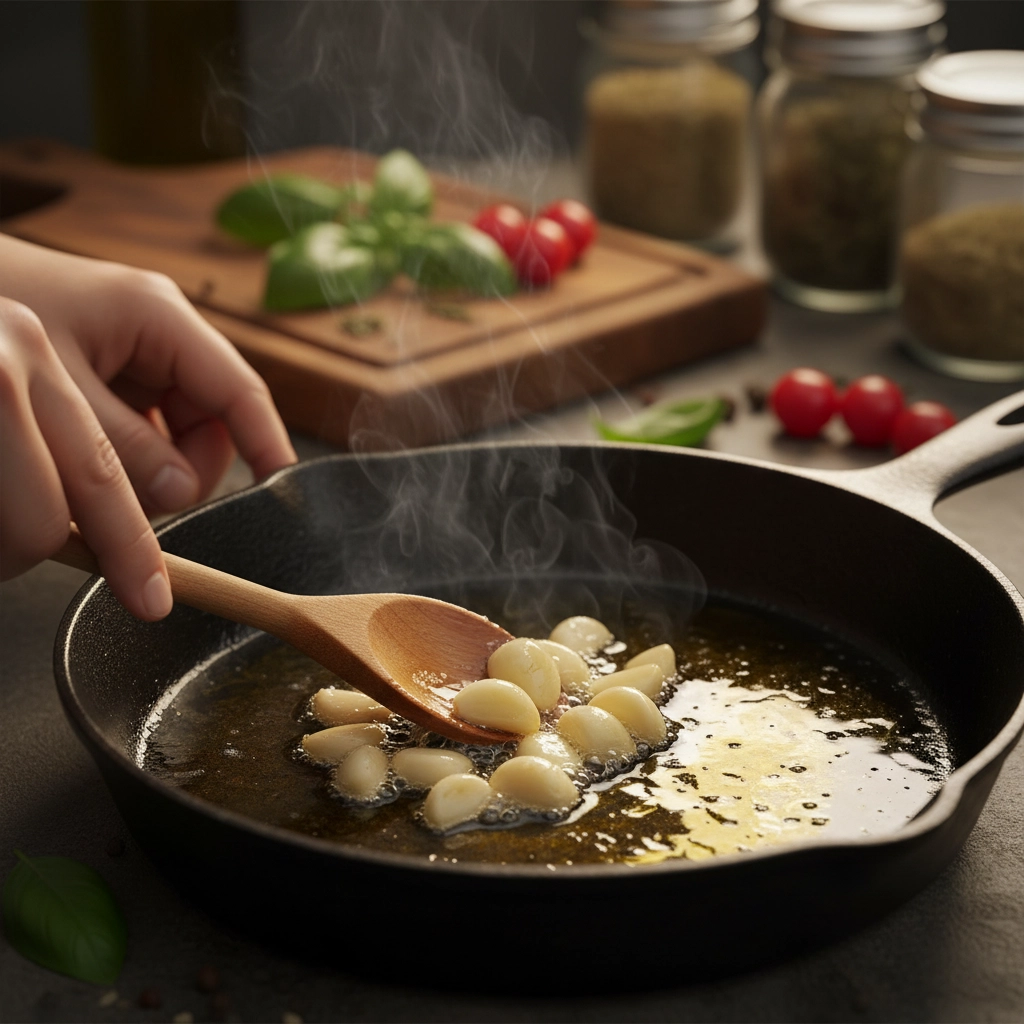
This handcrafted approach isn't just romantic storytelling: it's a deliberate choice that honors both Italian tradition and South Carolina's emerging specialty food scene. While larger producers chase efficiency and scale, Apastioli proves that local consumers crave authenticity, even if it means higher costs and smaller batches. The Classic Italian Red Sauce now sits on shelves in 15 Piggly Wiggly stores across South Carolina, with Food Lion and other major retailers recognizing that clean-label, locally-made products represent the future of specialty foods.
But scaling presents challenges that every artisanal food producer faces. The overnight music sessions and hand-labeled jars can only take you so far. Apastioli is currently working with copackers: a temporary solution while investment brokers seek the funding needed to acquire Longwing Plantation, a 1,716-acre property destined to become Apastioli Farms. The $25 million vision includes not just processing facilities, but a complete farm-to-table ecosystem employing veterans and individuals in recovery, growing everything from tomatoes and basil to the flowers that will supply the company's fragrance line.
Essential Carolina Specialties Every Beginner Should Know
Lowcountry Classics That Define the Region
Lowcountry Pirlou (also spelled "perloo" or "purloo") represents the perfect marriage of necessity and creativity. This flavorful combination of Carolina Gold rice, meat, and vegetables seasoned with herbs and spices traces its roots to West African cooking traditions. Like Apastioli's marinara, authentic pirlou can't be rushed: the rice must absorb the flavors slowly, developing complexity through patience and proper technique.
Frogmore Stew showcases the coastal abundance that makes South Carolina special. This communal dish combines fresh shrimp, smoky sausage, sweet corn, and tender potatoes, often associated with Gullah/Geechee culture. The beauty lies in its simplicity and the quality of ingredients: much like how Apastioli's success comes from refusing to compromise on tomato quality or cutting corners with artificial flavors.
Shrimp and Grits defines Lowcountry cuisine like no other dish. Sweet, wild-caught shrimp from South Carolina waters served over creamy, buttered grits creates a combination that perfectly captures the region's coastal character. The key is fresh, local shrimp and stone-ground grits: another example of how the best specialty foods demand the best ingredients.
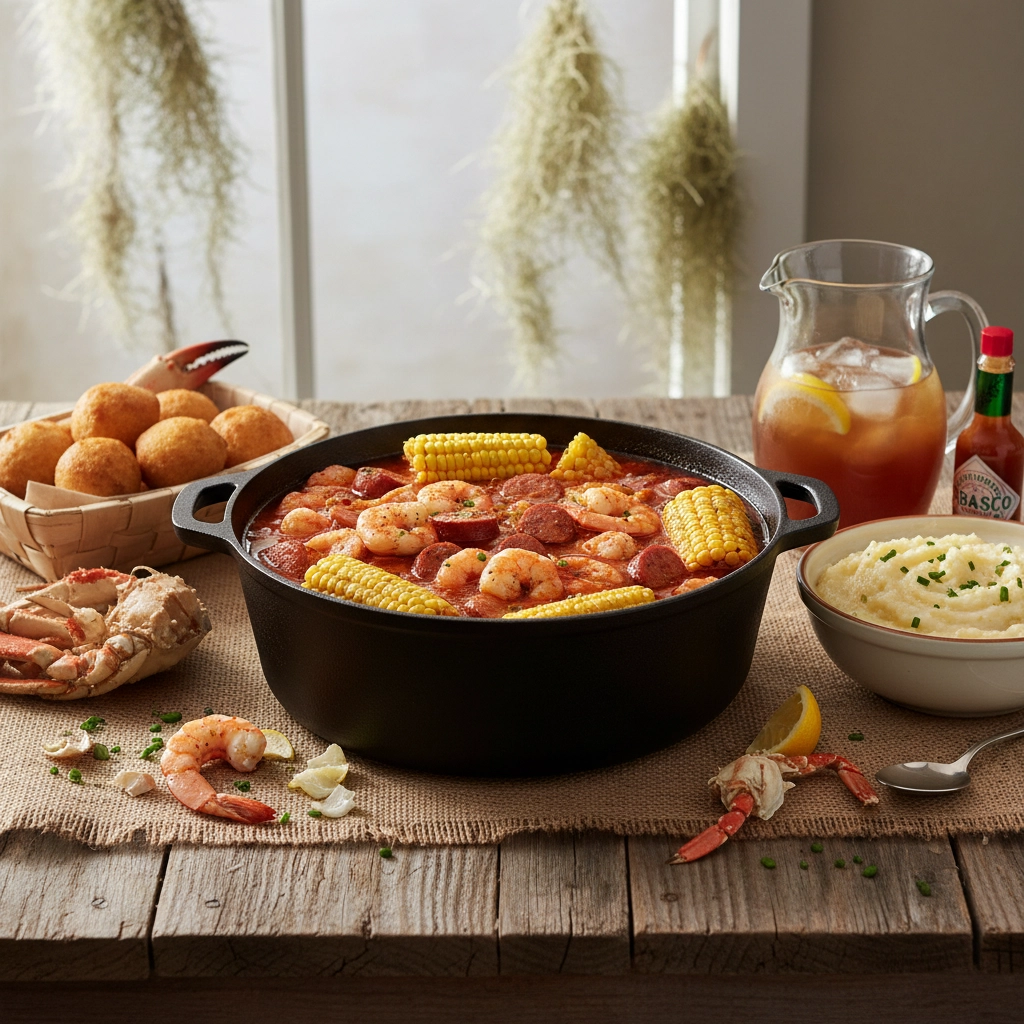
The Barbecue Traditions
South Carolina barbecue culture runs deep, with pork dominating the scene and distinctive sauces that vary by region. The mustard-based sauces of the Midlands, tomato-based options in the east, and vinegar-pepper combinations elsewhere reflect the state's diverse cultural heritage. Like Apastioli's approach to marinara, authentic Carolina barbecue requires time, attention, and respect for traditional methods. Pitmasters start their fires before dawn, tending the smoke and temperature throughout the day to achieve the tender, flavorful results that define the craft.
Sweet Traditions and Seasonal Specialties
South Carolina ranks as the second-largest peach producer in the United States, and Peach Cobbler represents the quintessential state dessert. Made with a buttery, biscuit-like topping over sweet, juicy peaches, this comfort food embodies the same philosophy that drives specialty food producers like Apastioli: start with the best local ingredients and let traditional techniques create something memorable.
Boiled Peanuts offer one of the state's most unique specialties. Raw peanuts boiled in their shells with salt create a tender, briny snack found at roadside stands throughout the state. It's another example of how South Carolina takes simple, local ingredients and transforms them into something distinctly regional.
The Future of Carolina Craft: Faith, Community, and Collaboration
What sets South Carolina's current specialty food renaissance apart is the intentionality behind the craft. Producers like Apastioli aren't just making food: they're building community, creating opportunities for people who need second chances, and proving that faith-driven business can compete in competitive markets.
Apastioli's upcoming collaborations with national nonprofits: including partnerships focused on cancer research, heart health, and faith-based community building: represent a new model for specialty food producers. These cobranded products, including specially-formulated marinara sauces, handcrafted fragrances, and traditional pignoli cookies, demonstrate how food can become a vehicle for positive impact.
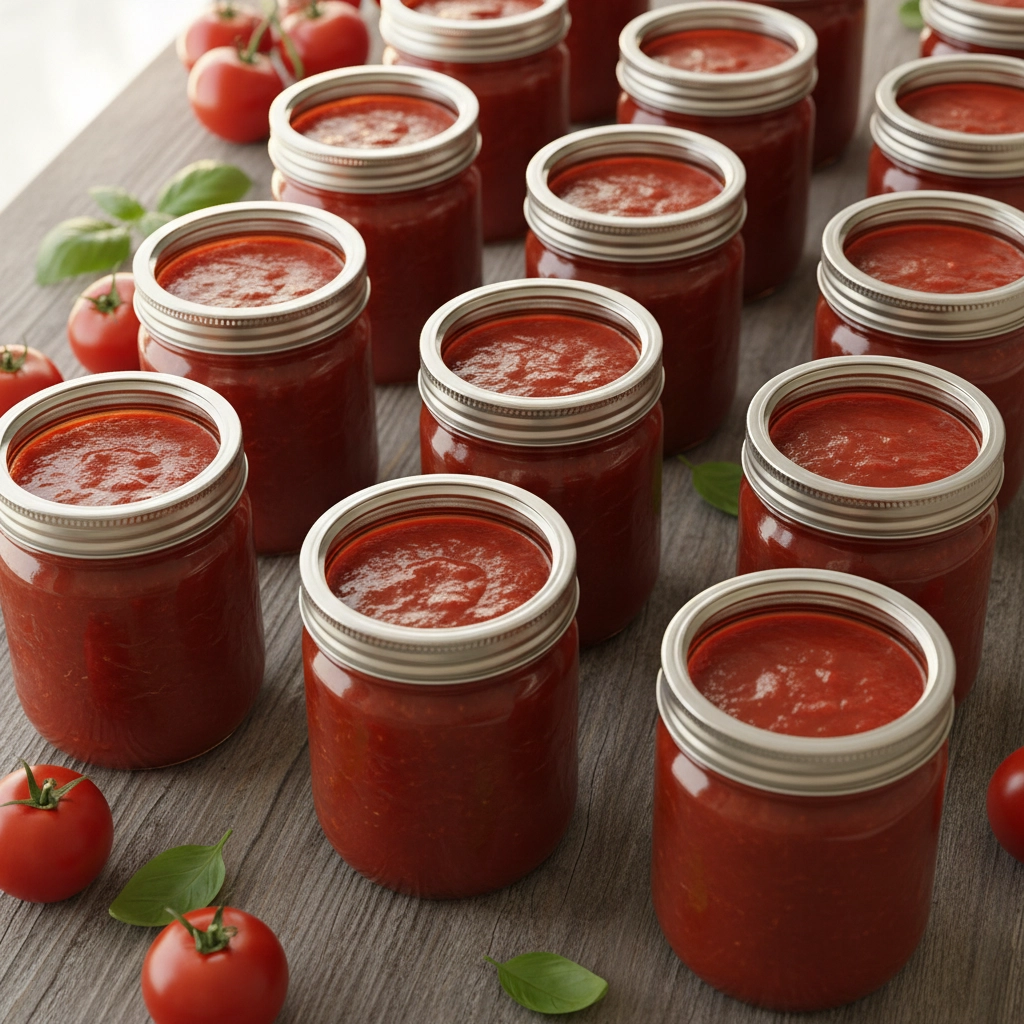
The vision extends beyond products to places. Apastioli Farms, when fully realized, will combine regenerative agriculture, food processing, and hospitality into a destination that employs veterans and individuals in recovery while showcasing the best of South Carolina specialty foods. It's Charleston's answer to what happens when Patagonia meets Magnolia: combining environmental consciousness, artisanal craft, and community impact under one mission-driven brand.
Building Your Carolina Specialty Food Journey
For beginners looking to explore South Carolina's specialty food scene, start with the fundamentals: seek out producers who prioritize local ingredients, traditional methods, and authentic flavors over convenience and mass production. Visit farmers' markets, support local retailers who champion artisanal producers, and don't be afraid to ask questions about sourcing and production methods.
The state's 22,600 farms covering about 5 million acres provide the foundation for an incredible specialty food ecosystem. From oyster roasts by the water to farm-fresh produce making its way onto plates the same day it's harvested, South Carolina offers authentic farm-to-table experiences that connect consumers directly with the land and the people who work it.
Look for clean-label products that list ingredients you recognize, support businesses that share their stories transparently, and remember that the best specialty foods often come from producers who view their work as ministry rather than just manufacturing. Whether it's a jar of handcrafted marinara or a locally-made fragrance, the products worth seeking out carry the DNA of their makers: their values, their dedication, and their commitment to excellence.
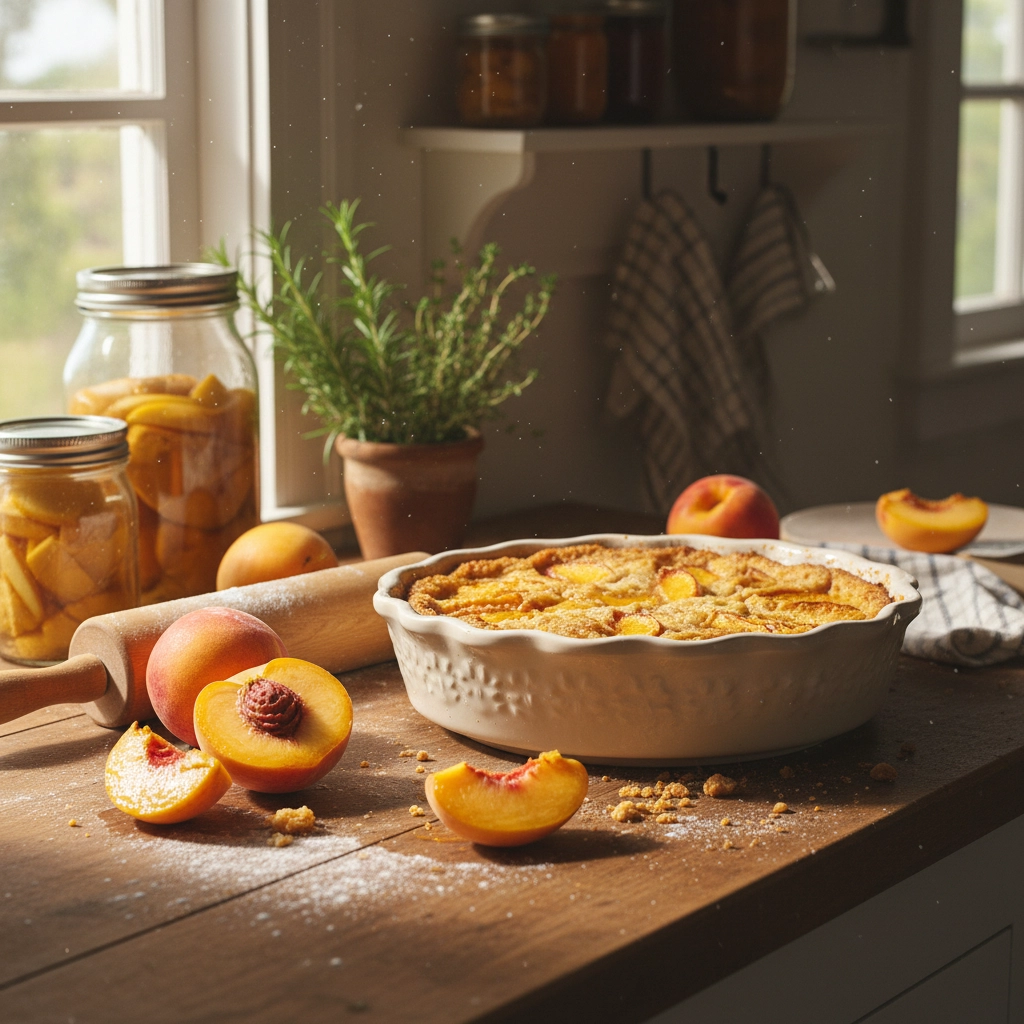
The beauty of South Carolina's specialty food movement lies in its ability to honor tradition while embracing innovation, to scale responsibly without sacrificing soul, and to prove that authenticity resonates with consumers hungry for products that mean something beyond mere consumption. In every jar of Apastioli sauce, every plate of authentic Lowcountry cuisine, and every bite of Carolina barbecue, you're tasting not just food, but the story of a place and its people: complex, resilient, and utterly unforgettable.
From the overnight music sessions in Charleston kitchens to the vision of regenerative farms serving as community anchors, South Carolina's specialty food future looks bright, flavorful, and deeply rooted in the values that make great food possible: patience, craftsmanship, and an unshakeable belief that second chances can become lasting legacies.
